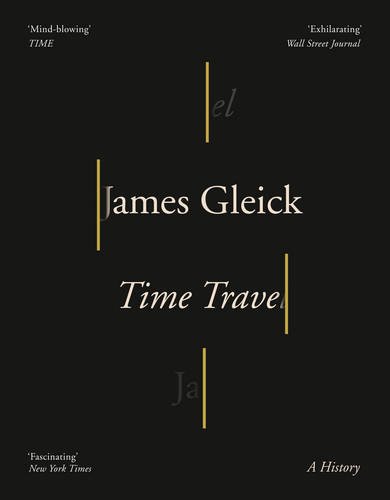James Gleick’s Time Travel Book Review
I have always been fascinated with science, especially when it comes to exploring various theories around certain “fringe” concepts such as time travel, wormholes, superstrings, life on other planets, etc.
Being a fan of James Gleick’s previous works such as “Chaos: Making a New Science” and “The Information“, it wasn’t difficult for me to jump on board when Gleick released his most recent work, “Time Travel“. Needless to say, I was not disappointed.
True to his witty and yet graceful style of writing, Gleick offers the reader an exhilarating journey into the past, specifically focusing on the history, philosophy and physics of time travel.
The main apparatus that Gleick uses for his springboard into this fascinating and ever-expanding topic is the seminal science fiction work by H.G. Wells, “The Time Machine“.
Gleick begins his story at the turn of the twentieth century, describing a young H.G. Wells fleshing out the characters for what would become his most famous work.
Through providing salient commentary on direct quotations and important storylines from “The Time Machine”, Gleick lays the groundwork for a discussion regarding the possibility of time travel itself in light of what we know from science thus far.
Discussions about the significance of a fourth dimension, one beyond what Euclid offered us via traditional plane geometry, instantly got my gears turning, as I have always been fascinated by the concept of time as a physical property – not unlike width, height or depth.
Throughout Gleick’s work, he offers several key points regarding the nature of time itself, and how when it comes down to it, not many of us can actually define time in any type of concrete way.
The author offers several viewpoints from many of the brightest luminaries in the world of science, philosophy, mathematics, and literature (e.g., Sir Isaac Newton, Thomas Hobbes, Arthur Schopenhauer, Augustine of Hippo, etc.) to help the reader grapple with the massive task of nailing down what time actually is, as well as whether or not it can be altered, manipulated, traversed, or otherwise tampered with to explore other dimensions.
Although Gleick acknowledges H.G. Wells as the first person to ever really explore the idea of time travel, I tend to think that this is somewhat of an incomplete assertion; while Wells might have been the first person to envision using a machine to facilitate time travel, the idea of a fourth dimension was something that even the ancient Greeks pondered in various writings.
This is by no means a make-or-break point for me regarding the usefulness of the book; in fact, it is one of the most captivating and enjoyable works I have read on the subject of time travel in recent memory.
Gleick’s writing style is informative yet witty, and although he can be a bit verbose at times (heck, I’m no stranger to that in my own writing), the overall tone of the book is energetic and thought-provoking.
He argues that the idea of time travel is quite useful in many applications (including being a fantastic plot device for a classic novel), but in the next breath, Gleick brings us “back to reality” (so to speak) by acknowledging that time travel is impossible.
Although the author makes himself crystal clear regarding his stance on the validity or possibility of time travel, he discusses it in a way that still provides a sense of wonder, hope and curiosity regarding how far the idea could possibly extend.
In some ways, Gleick argues, time travel helps us understand the complexities of our own consciousness, or our sense of place in this world. We know that we’re here on this earth, and we know that we’re observing events happening from day to day, and our thoughts act as markers or signposts on this journey through time.
In this way, we are in a sense travelling through time by way of the evolution of our thought life and consciousness, as we observe and move from one point in time to the next. I thought this was an intriguing point, and an interesting observation on his part.
All in all, I found James Gleick’s “Time Travel” to be a fascinating read, although I can’t say that I’m fully open to the idea that time travel simply cannot exist. Perhaps there might come a day when scientists can finally “crack the code” of the fourth dimension and unlock a new realm of existence that is independent of time altogether. Until then, however, I’ll keep using my imagination to keep hope alive!
Where to buy?
- Amazon UK: > Click here to check today’s price




